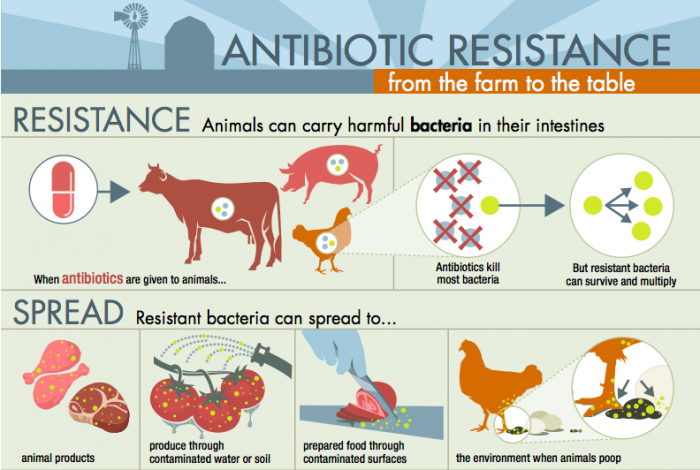

Zoetis is selling Neftin-T in India which contains the antibiotic Tylosin.Zoetis recommends feeding Neftin-T to chickens to improve weight gain and FCR (feed conversion rate).
Context
Zoetis is selling Neftin-T in India which contains the antibiotic Tylosin.Zoetis recommends feeding Neftin-T to chickens to improve weight gain and FCR (feed conversion rate).Tylosin is not only critically important to animal healthbut it has been banned for use as a growth promoter in the EU.It is because of fears of resistance to erythromycin, which is used to treat chest infections and other human diseases.WHO classes erythromycin as critically important to human health.
About
- Zoetis the largest producer of veterinary medicines is supplying Indian farmers with antibiotics to help their animals grow faster. The world’s biggest animal drugs company has been accused of double standards and of exposing consumers in India to “higher levels of risk” by selling globally banned.
- The practice increases the prevalence of resistant bacteria that can infect humans and cause deadly and untreatable infections.
- Zoetis faces a dwindling market in U.S. since the ban in 2016 for these products, but expects that increased sales elsewhere will more than compensate in the future.
Antibiotic powders and tablets are fed to animals for increasing livestock production and it’s the nutritional level. Regular use of antibiotics in animal feed promotes growth, giving them higher value, but this practice is contributing to building drug resistance in bacteria and affects the health of the end-consumer.
Significance
Antibiotic usage in India
- India is the fourth largest consumer of antibiotics in animal food production globally and is on an increasingly dangerous path. The country has a huge unregulated livestock sector that freely uses these drugs which are easily accessible.
- Two-thirds of poultry farms in Punjab, for example, still use antibiotics for growth promotion. Such farms also reported high levels of multidrug resistant bacteria which can easily escape into the environment. We are losing medically important antibiotics at a very fast pace.
- A similar study by non-profit Centre for Science and Environment (CSE) research in Uttar Pradesh, Rajasthan, Haryana and Punjab found that the extensive use of antibiotic supplements in the animal feed, and untreated litter has given rise to the growth of drug resistant bacteria. It said that antimicrobial resistant bacteria are spreading out of the farmsbecause of poor hygiene practices and improper waste management.
Need for urgent regulation:
Most countries have taken baby steps to limit the use of antibiotics in animals: For example, in the United States certain drugs can’t be used in food production, but loopholes in the legislation may still allow antibiotics to be used as growth promoters. If we are serious about antimicrobial resistance, we need more ambitious policies.
Last year the United Nations General Assembly asked its member states to take measures to tackle the antimicrobial resistance problem.
- Maharashtra has ruled all animal drug stores should stop selling antibiotics to farmers without a prescription, after a court order.
- But in other states, no such regulations are in place.
- Animals reared for meat in the major emerging economies of Brazil, Russia, India, China and South Africais expected to consume double the amount of antibiotics in 2030 than they did in 2010.
- This needs urgent attention of policy makers as a simple ban will not suffice.
Learning Aid
An overview of how the antibiotic resistance develops and spreads :


